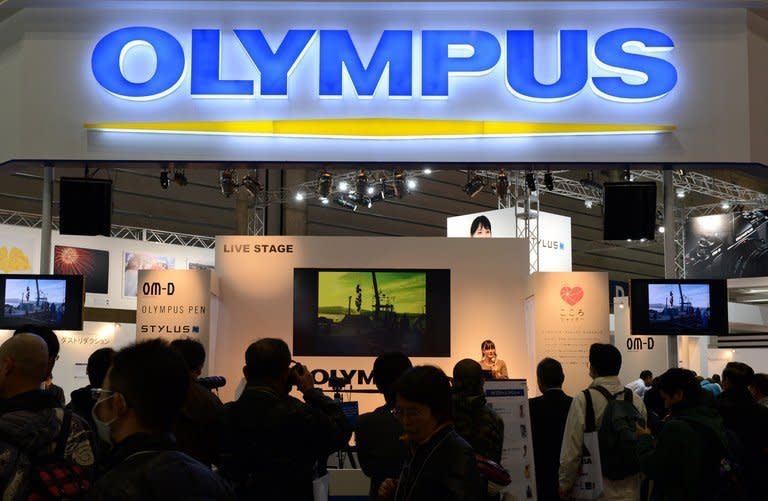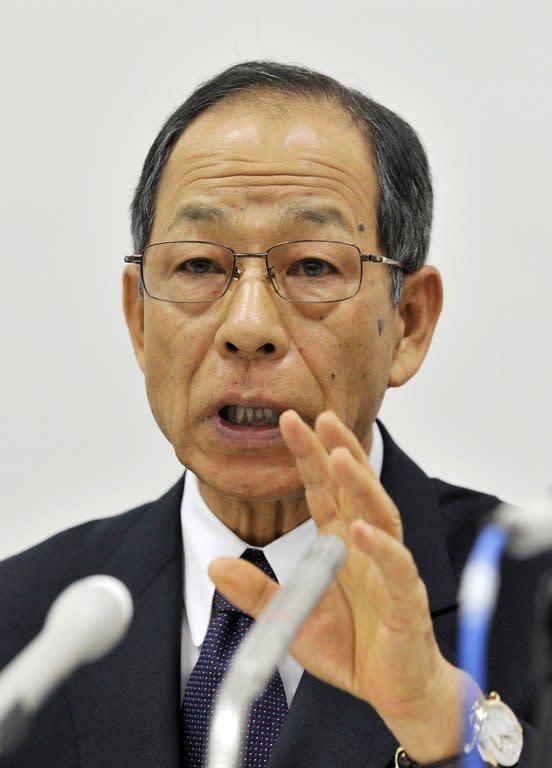Ex-Olympus execs avoid jail over Japan loss cover-up
A Japanese court on Wednesday handed suspended sentences to three former Olympus executives accused of engineering a massive accounting fraud at the camera and medical equipment maker. Prosecutors had asked that sacked company president Tsuyoshi Kikukawa be jailed for five years and lesser terms given to ex-vice president Hisashi Mori and auditor Hideo Yamada. The sentences from the Tokyo District Court, ranging from three-years for Kikukawa and Yamada to two-and-a-half years for Mori, carry no immediate jail time. A court spokesman also confirmed that Olympus itself was fined 700 million yen ($6.9 million) for its role in the affair, which badly damaged Japan's corporate governance image and turned the company's first foreign leader into a high-profile whistleblower. Prosecutors had asked for a one-billion-yen fine against the company, which suffered serious damage to its balance sheet in the wake of a crisis that made headlines around the world. "The accused Tsuyoshi Kikukawa and Hideo Yamada were both sentenced to three years of imprisonment while the accused Hisashi Mori was sentenced to a jail term of two and a half years," the court spokesman told AFP. "Those sentences will be suspended for five years and four years, respectively." The men were key figures in a complicated fraud to hide about $1.7 billion in losses using outsized consulting fees and buying unrelated companies. The cover-up was later exposed by Olympus's chief executive Michael Woodford in late 2011. The Briton was abruptly sacked after he raised concerns about the firm's accounting. The company initially denied wrongdoing. It later admitted to the fraud and sacked Kikukawa and other executives as Japanese, British and US authorities launched probes into the affair. Olympus subsequently agreed to a reported 10 million pound ($15 million) payout to Woodford to settle a wrongful dismissal lawsuit. The three men had already pleaded guilty to charges they falsified the company's financial results, with Kikukawa in September telling the court he would take "full responsibility" for the crime. The company has already been fined about 192 million yen by Japan's Financial Services Agency. Separately, Japanese authorities have ordered Olympus to pay about 5.0 billion yen in back taxes and penalties related to the cover-up, local media have reported. Nobuo Gohara, a lawyer and a former member of the panel that reviewed the auditing of Olympus after the scandal, said in some ways, Kikukawa and his colleagues were victims of circumstance, who had inherited a loss. "The business itself was healthy. Because of the big losses handed down from the past, is it really OK to let the company go bankrupt?" he said. "How many company executives would reveal the loss and choose that option? "The court suspended the sentences as a way of showing some understanding to company executives in that situation." Gohara said Japanese criminal law puts primacy on the responsiblity of the organisation rather than on individuals, as is the case in the United States. "Corporate entities are considered to be public interests. The ruling refers to the responsibility of Olympus as a company, criticising the cover-up as an 'organised crime', and that is reflected in the penalty that the court imposed on the company," he told AFP. Indictments have also been filed against three businessman who were arrested last month on suspicion of illegally receiving money from Olympus in return for helping with the cover-up. Nobumasa Yokoo, 59, a corporate executive, and his associates Taku Hada, 50, and Hiroshi Ono, 51, face charges regarding the overseas transfer of 2.2 billion yen received as a reward for instructing company executives how to conceal the losses, Kyodo news agency said Monday. Olympus shares plunged in the wake of the scandal, losing about 75 percent of their value as they slipped below 500 yen apiece. The firm announced a major corporate overhaul including a deal with Sony that saw the pair establish a medical equipment joint venture. The business was launched after Sony said it would invest 50 billion yen in Olympus. While it is better known by the public for its cameras, Olympus controls about 70 percent of the lucrative global market for medical endoscopes. On Wednesday, the Tokyo-listed stock closed at 3,170 yen, down 0.93 percent.




